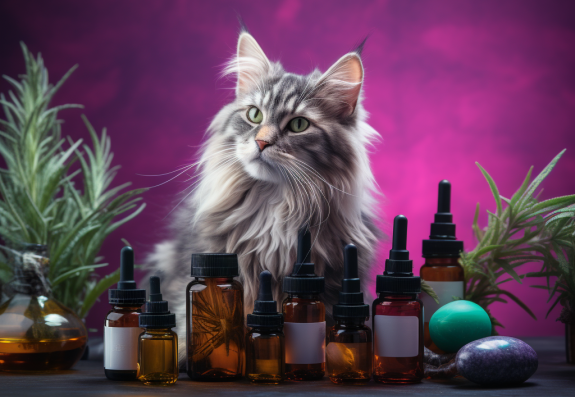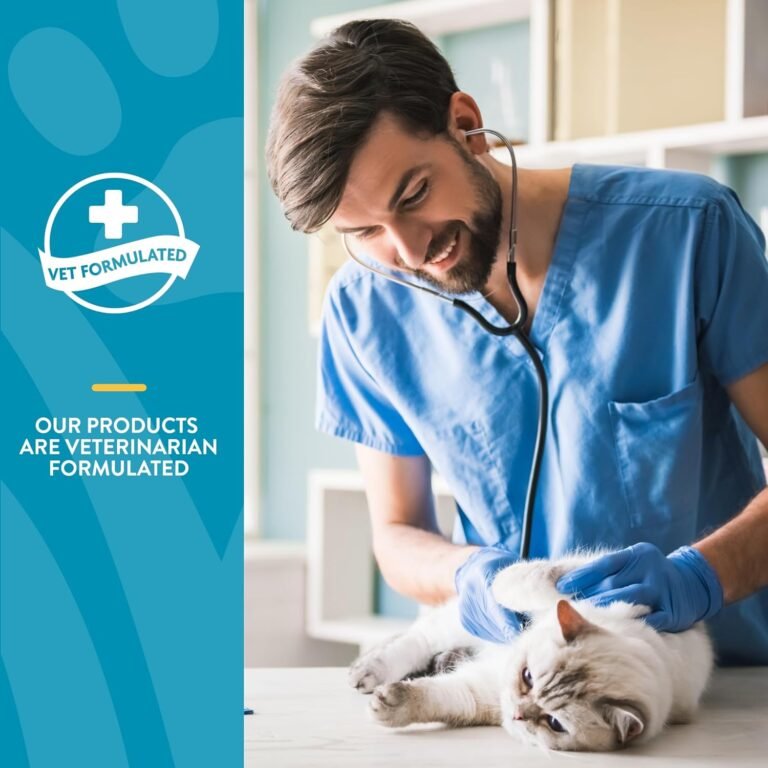Understanding Pet Insurance: Covering Mental and Physical Health
Pet insurance is becoming increasingly popular among pet owners who want to ensure the health and well-being of their furry companions. Understanding the different types of coverage and their benefits is crucial for making an informed decision. Accident and illness coverage provides comprehensive benefits, including coverage for accidents, illnesses, hereditary and congenital conditions, chronic conditions, behavioral issues, and alternative therapies. On the other hand, accident-only coverage focuses on emergency situations. By choosing the right pet insurance plan, pet owners can provide their pets with the necessary care while also managing their financial circumstances.
Key Takeaways
- Understanding the different types of pet insurance coverage is essential for pet owners.
- Accident and illness coverage provides comprehensive benefits for a wide range of conditions.
- Accident-only coverage focuses on emergency situations.
- Choosing the right pet insurance plan is important for managing both the pet’s needs and the owner’s financial circumstances.
- Pet insurance helps ensure the health and well-being of pets while alleviating financial and emotional burdens.
What is Pet Insurance?

Why is Pet Insurance Important?
Pet insurance enables pet parents to promise vital care in sickness and health without financial limitations dictating possible treatment options. Policies create financial pathways enabling pets to receive critical medical interventions despite costly price and depleted finances. Pet insurance also incentivizes pet parents to prioritize preventative care starting early on – investing in wellness today to avoid disease tomorrow. This compounds savings long-term by helping pets stay healthier from the outset. Ultimately – purchasing pet insurance demonstrates devotion in caring for your pet over a lifetime, in times of robust health and serious illness alike.
Types of Pet Insurance Coverage
When considering pet insurance, it’s important to understand the different types of coverage available and what they entail. Accident and illness coverage is a comprehensive option that caters to a wide range of conditions, including accidents, illnesses, hereditary and congenital conditions, chronic conditions, behavioral issues, and alternative therapies. For example, if a pet were to develop a chronic illness or genetic condition, this type of coverage would typically provide financial assistance for ongoing treatment and management. On the other hand, accident-only coverage
Choosing the Right Pet Insurance Plan
When choosing the best pet insurance plan, there are several crucial factors to consider. Firstly, it is essential to research and compare different plans to determine which one aligns with your pet’s specific needs. For example, if you have a senior pet, you may want to prioritize a plan that covers chronic conditions and age-related illnesses. On the other hand, if you have a young and active pet, you might want to focus on coverage for accidental injuries and potential illnesses that may arise. Researching various plans allows you to tailor the coverage to your pet’s individual requirements and potential health risks. Secondly, evaluating your budget and financial capabilities is also paramount. Different pet insurance plans come with varying premiums, deductibles, and coverage limits. For example, while comprehensive accident and illness coverage may provide extensive benefits, it might come with a higher premium. Conversely, if you have a limited budget, you might opt for more basic coverage, such as accident-only or wellness coverage. Additionally, understanding the policy terms, such as waiting periods and pre-existing condition exclusions, is crucial in making an informed decision about the affordability and suitability of a specific plan.
Covering Physical Health

Routine Care and Preventive Services
Pet insurance offers advantages related to routine care, such as wellness exams, vaccinations, parasite prevention, dental cleanings, and deworming. This type of coverage promotes the overall well-being of your pet by enabling you to stay proactive in maintaining their health through regular preventive care measures. By having pet insurance, you can ensure that your pet receives timely vaccinations and preventive dental cleanings, which are crucial in preventing common health issues and maintaining their overall health. Additionally, pet insurance can cover the costs of routine blood tests, microchipping, and spay/neuter surgery. With pet insurance, you have peace of mind knowing that you can easily afford these essential preventive services for your furry friend.
Accidents and Injuries
When it comes to pet insurance, there are different types of coverage available to protect your furry friend. One type of coverage is accident-only, which focuses solely on injuries resulting from mishaps. For example, if your pet were to sustain an injury due to an accident, such as being hit by a car, accident-only coverage would help with the associated veterinary costs. It’s important to note that this coverage usually excludes pre-existing conditions and accidents where the owner is at fault.
Another type of coverage is accident and illness, which provides financial assistance for ongoing treatment and management of both accidents and illnesses. This comprehensive coverage is a cost-effective way of avoiding unexpected bills and ensuring your pet receives the care they need.
Lastly, there is wellness coverage, which is designed to address routine veterinary care. This type of coverage can include preventive services like vaccinations, flea and tick prevention, and annual check-ups. It’s a great option for pet owners who want to proactively maintain their pet’s health.
It’s important to carefully consider your pet’s needs and your budget when choosing the right coverage for them. Consulting with a pet insurance provider can help you navigate the options and find the plan that best suits your pet’s specific needs.
Illnesses and Chronic Conditions
Coverage When considering pet insurance, it’s important to understand the different types of coverage available and what they entail. Accident and illness coverage is a comprehensive option that caters to a wide range of conditions, including accidents, illnesses, hereditary and congenital conditions, chronic conditions, behavioral issues, and alternative therapies. For example, if a pet were to develop a chronic illness or genetic condition, this type of coverage would typically provide financial assistance for ongoing treatment and management. On the other hand, accident-only coverage focuses on emergency situations and provides benefits such as diagnostic tests, treatment, surgery, exam fees, and prescription medications for emergency vet care due to accidents. It does not cover pre-existing conditions or owner-at-fault accidents. Additionally, some pet insurance plans offer wellness coverage, which includes routine veterinary care procedures, grooming, and training. Researching and comparing different pet insurance policies can help you find the right coverage for your pet’s specific needs.
Covering Mental Health

Behavioral Therapy and Training
Behavioral therapy and training are crucial for ensuring the well-being and happiness of your pet. Training helps them learn important skills and behaviors, while behavioral therapy addresses any underlying issues or challenges they may be facing. By providing consistent and positive reinforcement, you can help your pet develop good habits and overcome any behavioral problems.
Here are some key benefits of behavioral therapy and training:
- Socialization: Training helps your pet interact with other animals and people in a positive and controlled manner.
- Stress Management: Training can help your pet cope with stressful situations and reduce anxiety.
- Improved Communication: Training enhances the bond between you and your pet, allowing for better understanding and communication.
Remember, patience and consistency are key when it comes to training your pet. If you need assistance, consider seeking guidance from a professional trainer or enrolling in a training program.
Tip: Reward-based training methods are highly effective and promote a positive learning experience for your pet.
Anxiety and Stress Management
Addressing the emotional needs of pets has become just as important as their physical health. Products and services aimed at improving their mental well-being have seen a rise in popularity. From calming supplements to therapy and training services, there are various options available to help alleviate anxiety and stress in pets. Customization and personalization have also been key trends in 2023, with personalized pet products and tailored nutrition plans gaining popularity.
Support for Emotional Well-being
When faced with challenges, pet owners often turn to their animal friends for far more than basic companionship and improved vitals. Many people are finding that their pets help reduce anxiety and depression and give them hope. Here are five ways you can turn to your pets, whatever the species, when you need a
Understanding Pet Insurance Policies

Policy Exclusions and Limitations
Pet insurance policies contain exclusions where they deny coverage. Common examples include: Preventative vaccines and checkups – unless you carry wellness coverage. Elective procedures like microchipping. Non-veterinary products/services. Experimental treatments. Costs stemming from malicious intent or gross negligence. While exclusions do apply, accident & illness plans remain robust. Read the fine print to avoid unwanted surprises. Getting clarity on policy particulars ensures your pet insurance delivers maximum value by illuminating what is and isn’t reimbursable. Protecting Your
Claim Process and Reimbursement
When it comes to filing insurance claims for your pet, there are a few important things to keep in mind. First, you will need to provide documentation such as vet receipts that detail the costs incurred. It is also important to note that you will need to pay the vet directly at the time of treatment and then submit the claim forms for reimbursement. The processing of claims can take approximately 2-4 weeks, so it is recommended to apply for reimbursement frequently rather than letting the forms pile up. This ensures a smoother and more efficient reimbursement process. Additionally, it is worth mentioning that pet insurance policies may have exclusions where they deny coverage for certain services, such as preventative vaccines and checkups. It is important to review the policy details to understand these exclusions and make informed decisions about your pet’s healthcare.
Renewal and Cancellation Policies
When it comes to renewal and cancellation policies, it’s important to understand the terms and conditions of your pet insurance plan. Renewal refers to the process of extending your policy for another term, while cancellation involves terminating your coverage before the policy period ends.
During the renewal process, it’s crucial to review any changes in coverage, premiums, or deductibles that may occur. This allows you to make informed decisions about whether to continue with your current plan or explore other options.
If you decide to cancel your policy, it’s essential to be aware of any cancellation fees or penalties that may apply. Some insurance providers may require a notice period or charge a fee for early termination.
Here are a few key points to keep in mind regarding renewal and cancellation policies:
- Review your policy terms and conditions during the renewal process.
- Be aware of any changes in coverage, premiums, or deductibles.
- Understand any cancellation fees or penalties that may apply.
- Consider your pet’s current health needs and future requirements when deciding whether to renew or cancel your policy.
Remember, having a clear understanding of the renewal and cancellation policies can help you make informed decisions about your pet’s insurance coverage.
Understanding Pet Insurance Policies
Conclusion
In conclusion, pet insurance is a valuable investment for pet owners who want to ensure the health and well-being of their furry companions. By understanding the different types of coverage available, such as accident and illness coverage and routine veterinary care, pet owners can make informed decisions that suit their pet’s needs and financial circumstances. Pet insurance provides financial security by safeguarding savings and eliminating unbudgeted expenses, while also offering emotional comfort by mitigating the stress of unexpected vet bills. With pet insurance, pet owners can focus on providing the best care for their pets without worrying about the financial burden. So, consider getting pet insurance today and give your pet the comprehensive care they deserve.
Frequently Asked Questions
What is pet insurance?
Pet insurance is a type of insurance policy that helps cover the cost of veterinary care for your pet.
Why is pet insurance important?
Pet insurance is important because it provides financial protection in case your pet needs medical treatment or emergency care.
What types of pet insurance coverage are available?
There are different types of pet insurance coverage available, including accident and illness coverage, routine care coverage, and wellness coverage.
How do I choose the right pet insurance plan?
To choose the right pet insurance plan, consider your pet’s age, breed, and health history, as well as your budget and coverage needs.
What does routine care coverage include?
Routine care coverage includes regular preventative care such as vaccinations, annual exams, teeth cleanings, and parasite prevention.
Can pet insurance cover mental health issues?
Yes, some pet insurance plans may cover mental health issues, including behavioral therapy and stress management.






